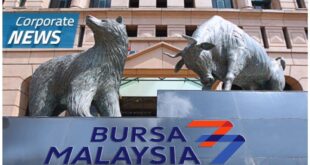PETALING JAYA: The government’s intention to review price controls and subsidies in 2024 will affect the outlook for inflation and demand conditions in Malaysia as the country moves from transition and policy setting to implement promised reforms and policies.
Socio-Economic Research Centre economist and executive director Lee Heng Guie said inflation is expected to rise higher to between 2.8 and 3.5 per cent in 2024 from an estimated 2.5 per cent in 2023.
“Risks come from fluctuation in exchange rates and supply-related factors, such as global commodity prices, geopolitical uncertainties and climatic conditions,” he said at the CEO Series 2023: Economy and Business Forum organised by Rehda Institute here, today.
Economy Minister Rafizi Ramli had confirmed recently that the government will roll out the targeted RON95 subsidy programme in the second half of 2024 to optimise its resources.
He said a country where those in the top 20 income group are receiving 53 per cent of blanket fuel subsidies is not a sustainable model, nor is it an equitable one.
“Given that our public finances ran a fiscal deficit of more than 5.0 per cent for three consecutive years, we must find new avenues to mobilise our resources and reduce wastages within the system,” said Rafizi.
Lee, in his presentation, cited the government’s limited fiscal space as one of the hindrances to growth.
“We know what went wrong and what needs to change. We have to endure the painful transition costs and adjustments when making radical reforms and overhauling the system,” he explained.
As for growth, Lee said Malaysia’s economy expanded 3.9 per cent in the first nine months of 2023 and foresees the last quarter to hover around four per cent supported by tourism.
“Next year, I am looking at an economic growth of about 4.5 per cent which is within the government’s range forecast. So, all sectors will continue to grow next year. The one that will be driving (it) is the services sector, followed by a recovery in the manufacturing sector,” he said.
Lee said the services sector will be strong with a 5.3 per cent growth, supported by the retailing industry, and depending on a revival in the tourism segment. – BK
 BeritaKini.biz Berita Viral Terkini di Malaysia
BeritaKini.biz Berita Viral Terkini di Malaysia





